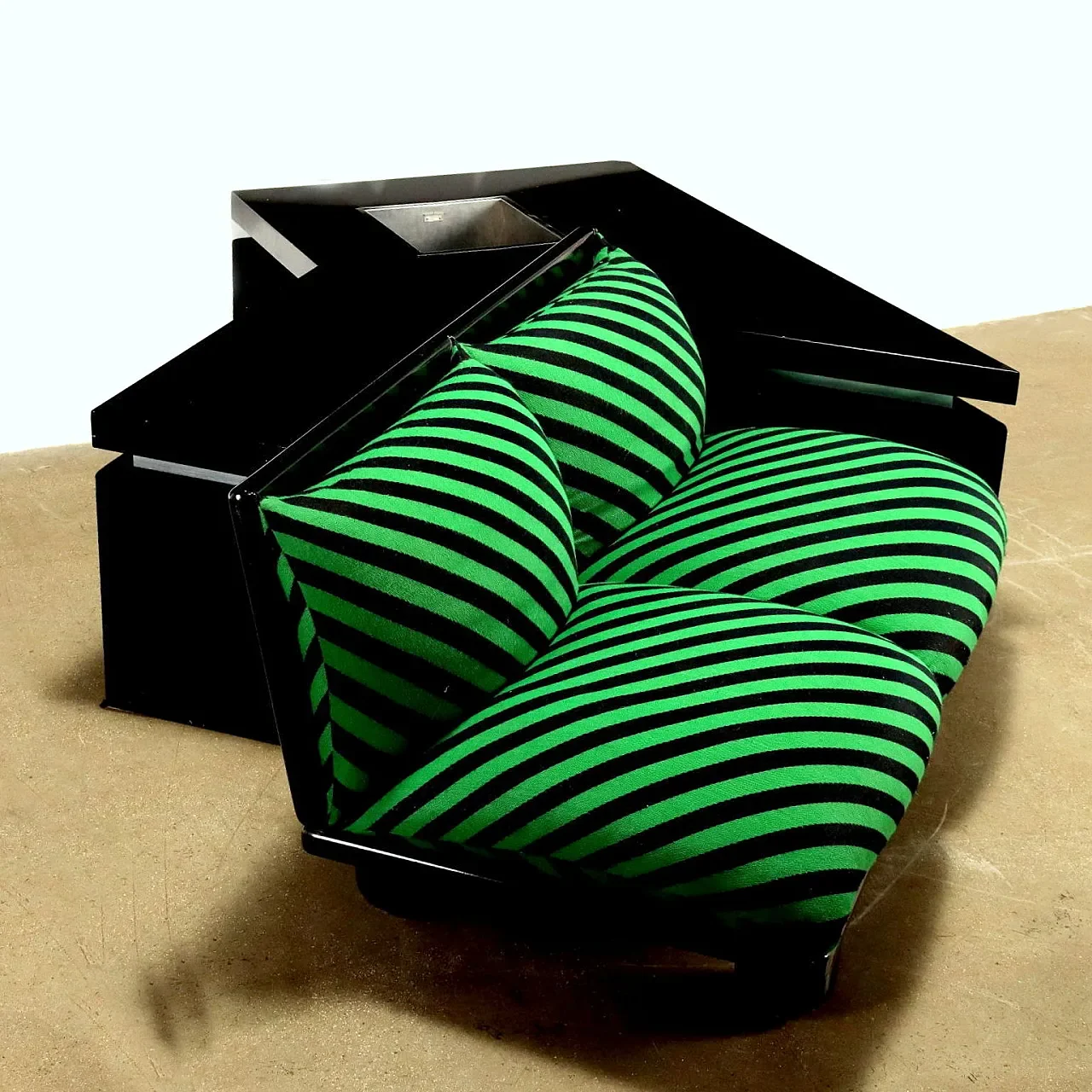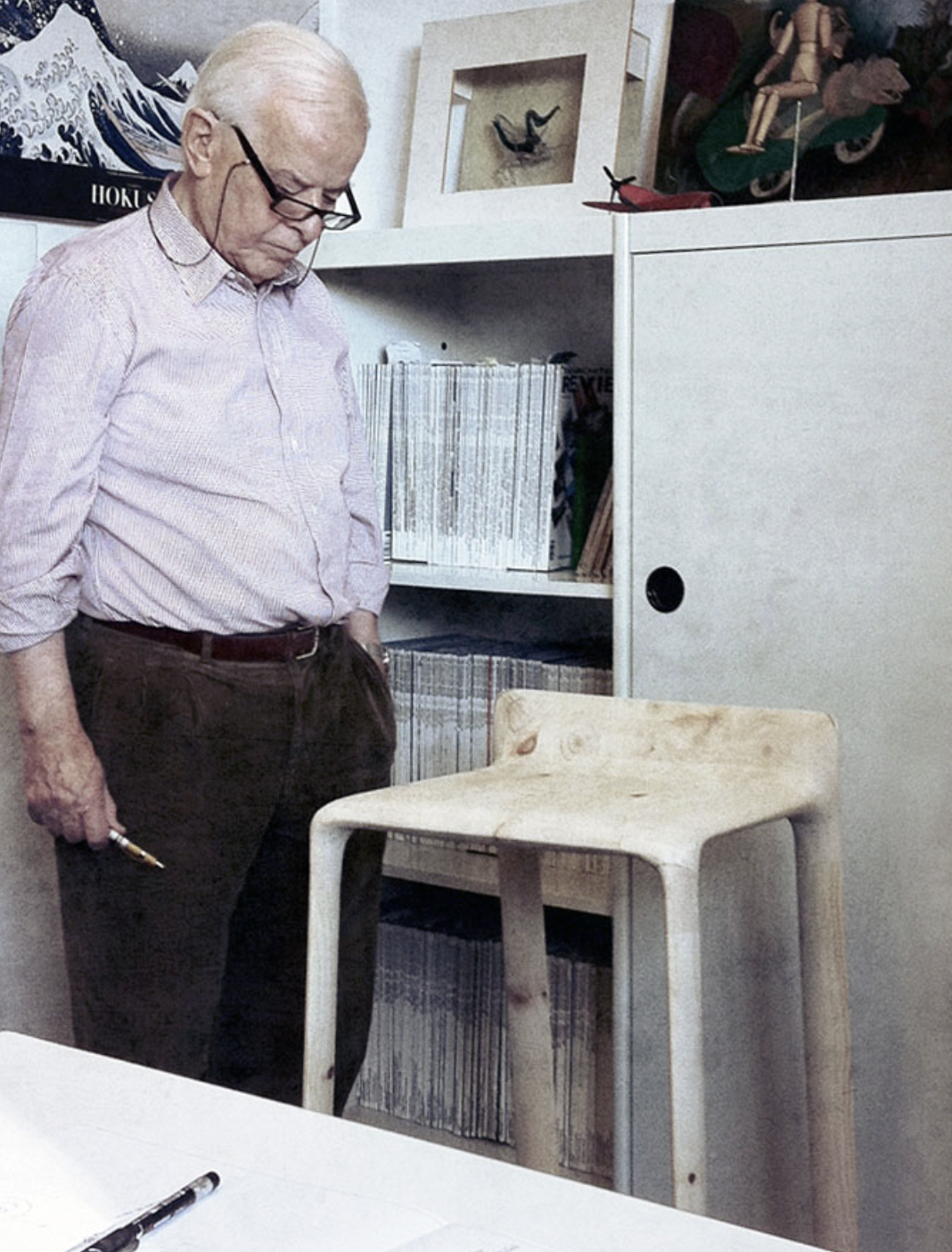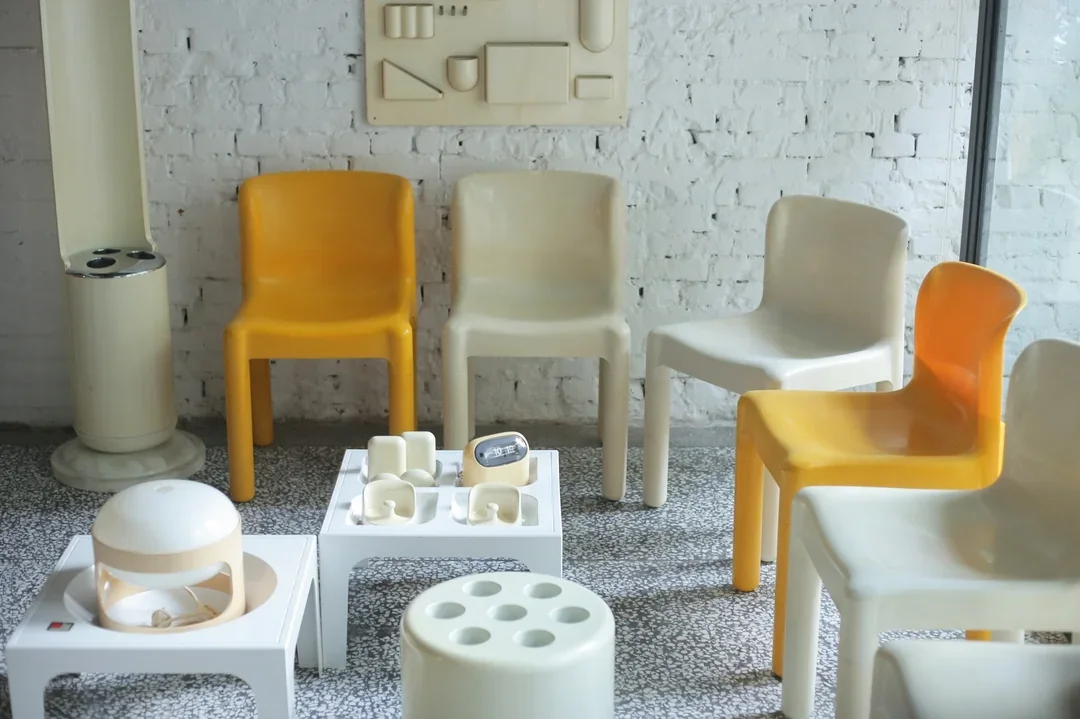CARLO BARTOLI
1931-2019
CARLO BARTOLI
Carlo Bartoli is considered one of the foremost innovators of the Italian design scene. Born in Milan, he graduated in architecture from the Milan Polytechnic University and opened his own design firm in 1959. Beginning his practice during the Golden Age of Italian design, his broad success would prove to be a double-edged sword. Carlo Bartoli worked in deep philosophical conflict – as whilst his works were both popular and mass produced, his personal design ideology was one of mindful consumption – believing that good design should last a lifetime.
In the post war economic boom, Italian design shifted focus from utilitarian furnishings to experimental and vibrant creations intended to present an alternative ‘home of the future’. This period is often considered as one of unmoored consumerism – wherein plastics and material goods became the language of cultural optimism. However, to call this period consumerist imbues unfair moral judgement on a time before widespread environmental awareness. During the late 50’s and early 60s the newfound affordability of products (such as televisions, washing machines and vehicles) was considered a societal success – a new age of egalitarian fairness wherein an increase in spending power meant the post-war generation could make purchases that represented freedom– put simply, it was a time of democratic design.
It was in the spirit of democratic design that Carlo Bartoli created one of his best-known pieces. In the late 60’s he began to experiment with injection moulding polypropylene, a manufacturing process that involves heating raw polyurethane pellets and thereafter injecting them under high pressure into a cooled mould. Mastering the use of this new technology, he created the worlds’ first entirely plastic chair – the Model 4875. Beginning production in 1974 with Kartell, the chair was a huge success. It was versatile, lightweight yet strong, and as its legs could be easily unscrewed - it was easily shipped across the globe.
Despite his success, Carlo Bartoli began to be concerned about the environmental effects of plastics and mass production. The late 70s had marked the beginning of a popular concern with environmental issues, among them the release of toxins into the atmosphere, the depletion of natural resources, and the excessive production of damaging waste materials that were slow to degrade. It was this environmental movement that solidified Bartoli’s new passion – for growing consumer culture should be resisted, and that good design should promote more thoughtful forms of interaction between people and their environments. Bartoli began to design with one focus – that his works should last a lifetime. His is interests broadened to include architectural and environmental rehabilitation – undertaking major projects to restore and modernize buildings and landscapes destined for demolition.
Although Carlo Bartoli lamented his use of plastics, it is a small concession that his designs – notably the model 4875 – are still as desired today as they were in the 1970s. The 4875, despite being over 50 years old, maintains its status as a collector’s item – a testament to its quality, vision and enduring legacy.
KEY DESIGNS:
Carlo Bartoli 'Solar' Lounge Chair in Fiberglass by Arflex 1960 -1969
Bogo Sofa by Carlo Bartoli for Rossi di Albizzate 1970-1979
Carlo Bartoli, set of six 'Mito' chairs for Tisettanta, 1969
Carlo Bartoli for Rossi di Albizzate 'Blop' Lounge Set in Original Fabric 1973
Carlo Bartoli for T 70 Tubular Dining Chair in Black Leather and Steel 1970
“Down” sofa set by Carlo Bartoli for Rossi di Albizzate, 1970s Italy 1970 - 1979
Model 4875 Chairs by Carlo Bartoli for Kartell, 1970s
COLLABORATIONS:
Arflex: Bartoli designed iconic seating for Arflex, including the Gaia armchair and Bicia lounge chair. The Gaia armchair is featured in the permanent collection at the Museum of Modern Art (MoMA) in New York.
Kartell: His collaboration with Kartell produced the famous 4875 chair, the world's first chair to be made entirely of polypropylene. This chair is also part of the permanent collection at the Pompidou Centre in Paris.
Kristalia: Bartoli Design has had a long-standing partnership with Kristalia, creating popular tables like the Sushi and Maki
Matteograssi: Bartoli collaborated with Matteograssi to produce dining chairs and other pieces, such as the Vela
Rossi di Albizzate: For Rossi di Albizzate, Bartoli developed the modular Blob sofa and the award-winning Tube sofa.
Segis: This partnership yielded multiple award-winning products, including the R606 UNO chair (with Fauciglietti Engineering) and the Breeze stacking armchair.
Tisettanta: Collaborations with Tisettanta led to designs such as the Mito table.










